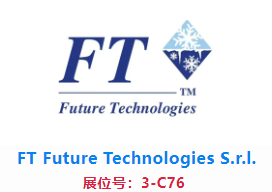
The summer meeting of the Environmental Label Jury took place on 20/21 June in Hanover. Anka Dobslaw, State Secretary in the Lower Saxony Ministry for the Environment, Energy and Climate Protection, welcomed the Environmental Label Jury.
The Environmental Label Jury decided at its summer meeting on criteria for five new product groups to be awarded the Blue Angel ecolabel:
-
Heat pumps
-
Liquid coolers
-
Foam and water fire extinguishers
-
Structural waterproofing made of liquid plastics
-
Event catering and canteen operation
The new basic award criteria for these product groups will be finalised in the coming weeks and made available on www.blauer-engel.de/en/certification/basic-award-criteria. Manufacturers of particularly environmentally friendly products can then apply for the label.
Furthermore, a test order for paving mortar and joint sand was decided by the jury.
Further information on the new ecolabels:
New ecolabels: heat pumps
The heat pump is a key technology for moving away from fossil fuel heating systems and is used not only for space heating but also for producing hot water. The use of regenerative heat sources such as groundwater, geothermal energy and air saves fossil fuels. Nevertheless, heat pumps also contribute to the greenhouse effect if direct and indirect emissions are not minimised. These result from the consumption of electrical energy and the greenhouse gas emissions associated with energy production (indirect emissions), as well as from the release of refrigerants (direct emissions), which often have a very high global warming potential (GWP). The Blue Angel requirements are therefore designed in a way that combines the absence of fluorinated refrigerants with energy-efficient operation of the heat pumps to reduce their greenhouse gas emissions - all the more so if the consumers also obtain the operating electricity from renewable sources. Other potential environmental impacts of heat pumps along their life cycle are also taken into account, such as those related to atmospheric degradation products of refrigerants or noise emissions.
The aim of this ecolabel is to be able to identify products that work with natural refrigerants and are characterised - beyond the legal requirements - by additional environmentally friendly properties.
The explanation field reads:
- climate-friendly natural refrigerants
- energy efficient
- low-noise
New ecolabels: liquid coolers
Liquid coolers are refrigerating machines that extract heat from the medium to be cooled via a water circuit. The heated water is then cooled again with the aid of the refrigeration circuit in which a refrigerant circulates. They are used in a wide range of cooling applications in the commercial and industrial sectors, but also for air conditioning in residential and especially non-residential buildings. Conventional liquid coolers contribute to climate change in two ways: firstly, by requiring electrical energy and the greenhouse gas emissions associated with energy conversion (indirect emissions), and secondly, through the direct emissions of refrigerants, which often have a very high global warming potential (GWP). Direct emissions are caused by leaks during operation, maintenance and repairs as well as disposal. Against this background, greenhouse gas emission savings can be realised by using environmentally friendly and energy-efficient liquid coolers. Starting points here are in particular the use of natural refrigerants and increasing the efficiency of the machines. The aim of this ecolabel is to be able to identify products that work with natural refrigerants and are characterised - beyond the legal requirements - by additional environmentally friendly properties. These are, in particular, high energy efficiency and low noise emissions.
The explanation field reads:
-
climate-friendly natural refrigerants
-
energy efficient
-
low-noise


























